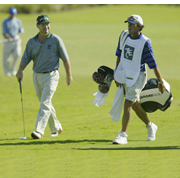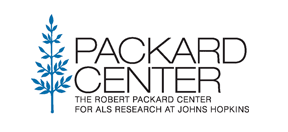|
 |
 |
 |
 |
| |
|
|
|
Amyotrophic Lateral Sclerosis (ALS) is
also known as “Lou Gehrig’s Disease,” named after the
New York Yankee first baseman who succumbed to the
disease in 1941. ALS is a progressive neuromuscular
disease characterized by a degeneration of motor nerve
cells in the brain and spinal cord. ALS destroys a
person’s motor neurons, causing weakness, paralysis and,
eventually, death. There is no known cure. |
 |
|
Most muscles in the body are affected,
including those in the legs, feet and hands, and those that
control swallowing, talking and breathing. The majority of
ALS patients die of suffocation or other respiratory
failure.
ALS does not affect a person’s intellect,
vision, hearing, or senses of smell and touch. People
affected by this disease are completely aware of what is
happening to them at all time. Ninety percent of all ALS
cases are random; only 5-10 percent are linked genetically.
ALS is always fatal, with about 50% of all
patients living at least two years after the diagnosis.
Most patients are diagnosed between the ages of 40 and 75.
More than 5,500 people in the US are diagnosed each year,
and as many as 30,000 Americans may have the disease at any
given time. Yet, because patients do not live long with ALS
and because of the relatively “small” number of those
afflicted, ALS is classified by the National Institutes of
Health as an “orphan disease:” one that effects less than
200,000 people. An orphan disease does not get “adopted” by
the pharmaceutical industry because there is little
financial incentive for the private sector to make and
market new medications to treat or prevent it.
Many research facilities, such as our primary
beneficiary The Robert Packard Center for ALS Research,
receive no federal or state funding and depend solely on
philanthropy. Private donations -- from grassroots, local
events such as community golf tournament fundraisers and
individual donations to larger philanthropic Foundation
support -- are all vital to our continuing research efforts.
For more information on ALS and our partner,
the Packard Center, please go to
www.alscenter.org.
You can sign up for electronic updates, Twitter feeds and
their monthly newsletter at this site. |
 |
|
|
|
|
|
 |
 |
 |
|